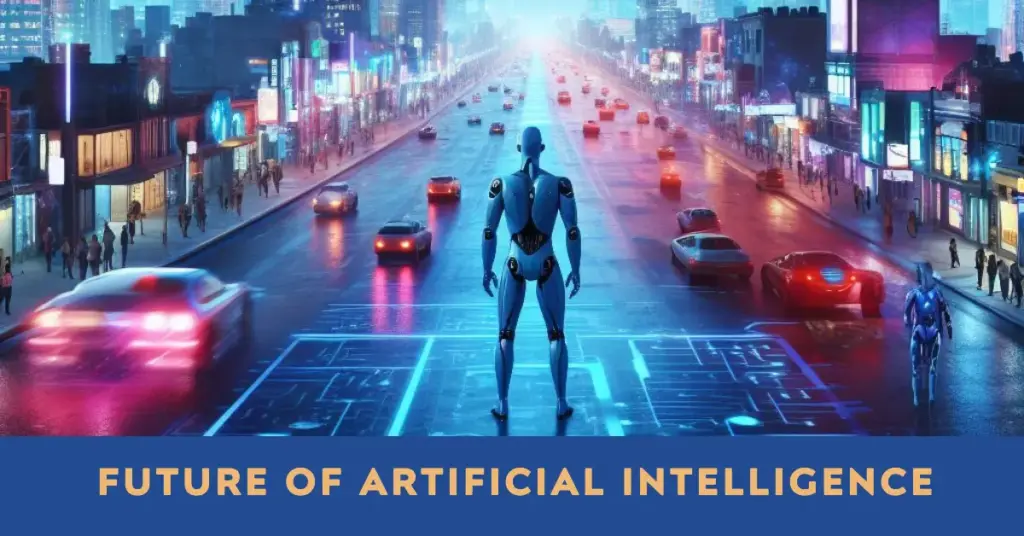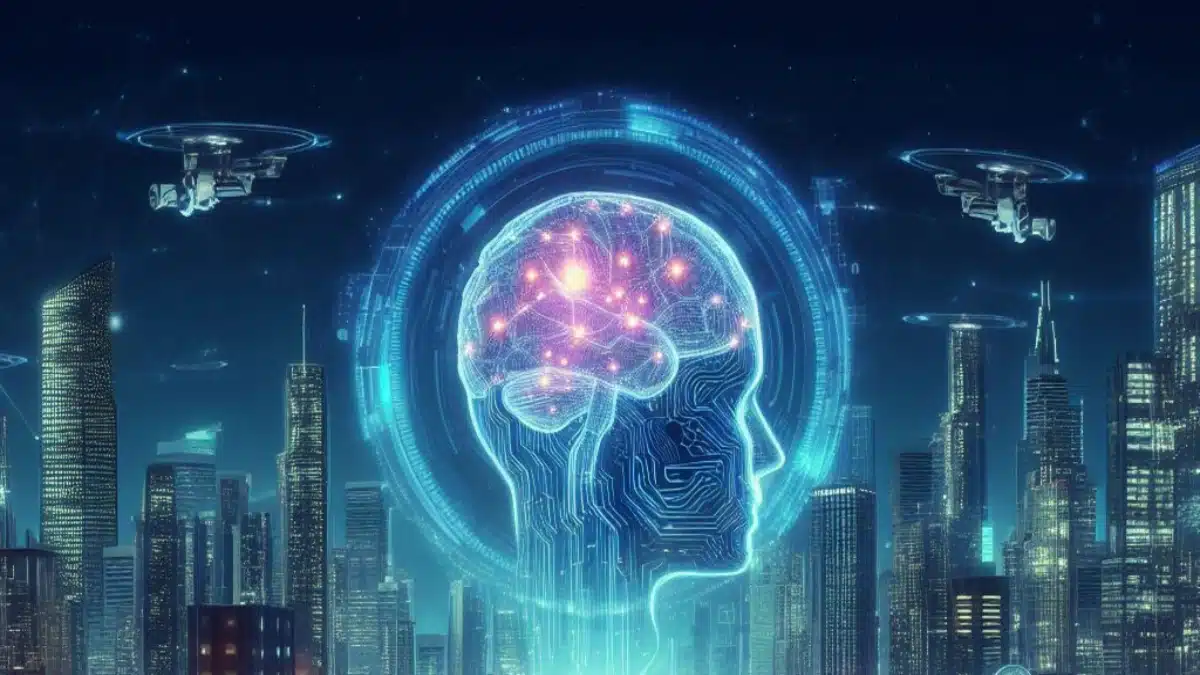Introduction to Artificial Intelligence
Artificial Intelligence (AI) is now no longer a figment of science fiction and has rapidly evolved into a potent technological force, fundamentally altering industries, influencing our daily existence, and prompting profound questions regarding humanity’s future. Its ability to emulate human intelligence has marked the onset of a new era characterized by innovation and transformation. This article endeavors to explore the historical progression, present status, and potential future of artificial intelligence directions, shedding light on its profound impacts across various sectors and addressing the ethical quandaries it gives rise to.
The Evolution of Artificial Intelligence
Origins of Artificial Intelligence in Antiquity Philosophers and mathematicians contemplated mechanical reasoning during antiquity, but the contemporary idea emerged in the mid-20th century. The term “artificial intelligence” was officially coined during the Dartmouth Conference of 1956, where visionaries like John McCarthy and Marvin Minsky convened to discuss the prospect of crafting machines capable of simulating human cognition.
AI’s early years were characterized by optimism and ambitious aspirations. Researchers harbored the belief that they could create machines capable of solving intricate problems, comprehending natural language, and even exhibiting common-sense reasoning. However, progress was gradual, and by the 1970s, AI experienced what has since been referred to as the “AI winter” – a period marked by diminished financial backing and waning interest due to unmet expectations.
The future of artificial intelligence got a boost with advances in machine learning and expert systems that helped AI flourish in the 1980s and 1990s. Computers can learn and predict using algorithms. This approach laid the groundwork for many of the AI applications that currently abound.
AI has advanced to unprecedented levels thanks to data availability, computational capability, and improved algorithms in the 21st century. Natural language processing, autonomous vehicles, and image and speech recognition are applications of deep learning.
The Current State of Artificial Intelligence
Presently, AI has pervaded nearly every facet of daily life, often operating inconspicuously. The following are key sectors significantly impacted by AI:
1. Healthcare:
AI has wrought a transformation in healthcare by enhancing diagnostics, expediting drug discovery, and improving patient care. Machine learning models excel at analyzing medical imagery, predicting disease outcomes, and aiding in pharmaceutical research. Telemedicine platforms harness AI to furnish remote healthcare services, enhancing accessibility.
2. Finance:
Within the financial sphere, AI plays a pivotal role in algorithmic trading, fraud detection, credit scoring, and risk management. AI-driven chatbots and virtual assistants facilitate customer inquiries and transactions.
3. Retail:
AI heightens the consumer shopping experience through personalized recommendations, efficient inventory management, and precise demand forecasting. Chatbots are widely deployed for customer support.
4. Transportation:
Self-driving automobiles and autonomous drones exemplify AI’s impact on transportation. These technologies hold the promise of enhancing safety and efficiency on roads and in aerial transit. The future of artificial intelligence holds a lot of scope in making transportation smoother, faster, and more efficient. It would also help in making it more economical by providing solutions to existing challenges.
5. Manufacturing:
AI-powered robotics and automation streamline manufacturing processes, amplifying productivity while minimizing errors. Predictive maintenance algorithms forestall machinery breakdowns.
6. Education:
AI is reshaping education through personalized learning platforms that adapt to individual student requirements. Automated grading systems expedite assessment processes, and AI-based virtual tutors offer supplementary support.
7. Entertainment:
Streaming platforms like Netflix and Spotify harness AI to deliver content recommendations based on user preferences. The gaming industry employs AI-driven NPCs (non-player characters) to augment gameplay experiences.
8. Natural Language Processing (NLP):
Voice virtual assistants like Siri and Alexa can now comprehend and respond to human speech. Translation services and sentiment analysis underpin NLP.
9. Cybersecurity:
AI contributes to cyber threat detection and prevention by scrutinizing network traffic for anomalies and identifying potential security breaches.
10. Environmental Monitoring:
AI aids in the monitoring and management of environmental parameters through the analysis of data derived from sensors and satellites, facilitating climate research and disaster prediction.
Ethical and Societal Concerns of Artificial Intelligence

Despite its immense promise, AI has triggered substantial ethical and societal quandaries. The following are a few key issues:
1. Bias and Fairness:
AI algorithms have the capacity to inherit biases present in training data, resulting in discriminatory outcomes in domains such as hiring, lending, and criminal justice. Mitigating bias and ensuring fairness in AI systems remains an ongoing challenge. The primary reason for this issue is that AI primarily relies on data from Large Language Models (LLMs). However, if the LLMs themselves are biased, achieving fairness and unbiased can be challenging.
2. Privacy:
AI’s ability to process vast troves of data engenders concerns over privacy. The collection and utilization of personal data for profiling and targeting prompt ethical questions concerning consent and surveillance.
3. Job Displacement:
Automation through AI and robotics has the potential to displace jobs in specific industries, necessitating workforce preparation for the evolving employment landscape.
4. Transparency and Accountability:
Certain AI models are often characterized as “black boxes,” making it arduous to comprehend their decision-making processes. Guaranteeing transparency and accountability is imperative, especially in critical applications such as autonomous vehicles and healthcare.
5. Security:
As AI becomes increasingly pervasive, it becomes a target for malevolent exploitation. Safeguarding AI systems and fortifying them against adversarial attacks constitute growing concerns.
6. Existential Risks:
Some experts have raised alerts related to the long-term perils posed by AI systems that might surpass human intellect, potentially posing existential threats to humanity. These concerns have prompted discussions on AI safety and regulation.
The Future of Artificial Intelligence

The forthcoming trajectory of AI encompasses substantial potential and yet remains steeped in uncertainty. The future of artificial intelligence is following trends and developments that warrant attention:
1. Medicine:
AI stands poised to play a pivotal role in early disease detection, pharmaceutical discovery, and personalized medicine. AI-driven virtual healthcare assistants could become commonplace.
2. Education:
The refinement of personalized and adaptive learning, driven by AI, is expected to revolutionize education and skills development.
3. Climate Science:
Data analysis, forecasting of natural disasters, and developing sustainable environmental solutions will all be enhanced by AI.
4. Space Exploration:
AI-driven robotics and autonomous systems will be vital for space exploration missions, enhancing the efficiency and autonomy of our exploration endeavors in the solar system.
5. Ethics and Governance:
The formulation of frameworks and regulations to ensure the ethical and responsible application of AI will be a pressing concern. Initiatives addressing AI transparency, accountability, and fairness will gain momentum.
6. Quantum Computing and AI:
Complex problems can be solved by quantum computing and AI that are currently beyond reach.
7. Human-AI Collaboration:
The prevalence of AI systems that collaborate with humans, rather than supplanting them, is projected to enhance productivity across diverse industries.
Conclusion
Artificial Intelligence has traversed an extraordinary path since its inception, dramatically reshaping the world in ways scarcely envisioned. Its influence extends from healthcare to transportation, education to entertainment, penetrating nearly every facet of society. However, this transformation brings forth an array of ethical and societal challenges that necessitate prudent consideration to ensure the judicious and constructive deployment of AI.
The future of artificial intelligence simultaneously inspires excitement and trepidation. As AI continues its relentless evolution, it will unfurl fresh possibilities and opportunities while demanding unwavering vigilance in addressing attendant risks. Striking an equilibrium between innovation and ethical responsibility remains paramount in sculpting a future wherein AI serves as a benevolent catalyst for progress.

